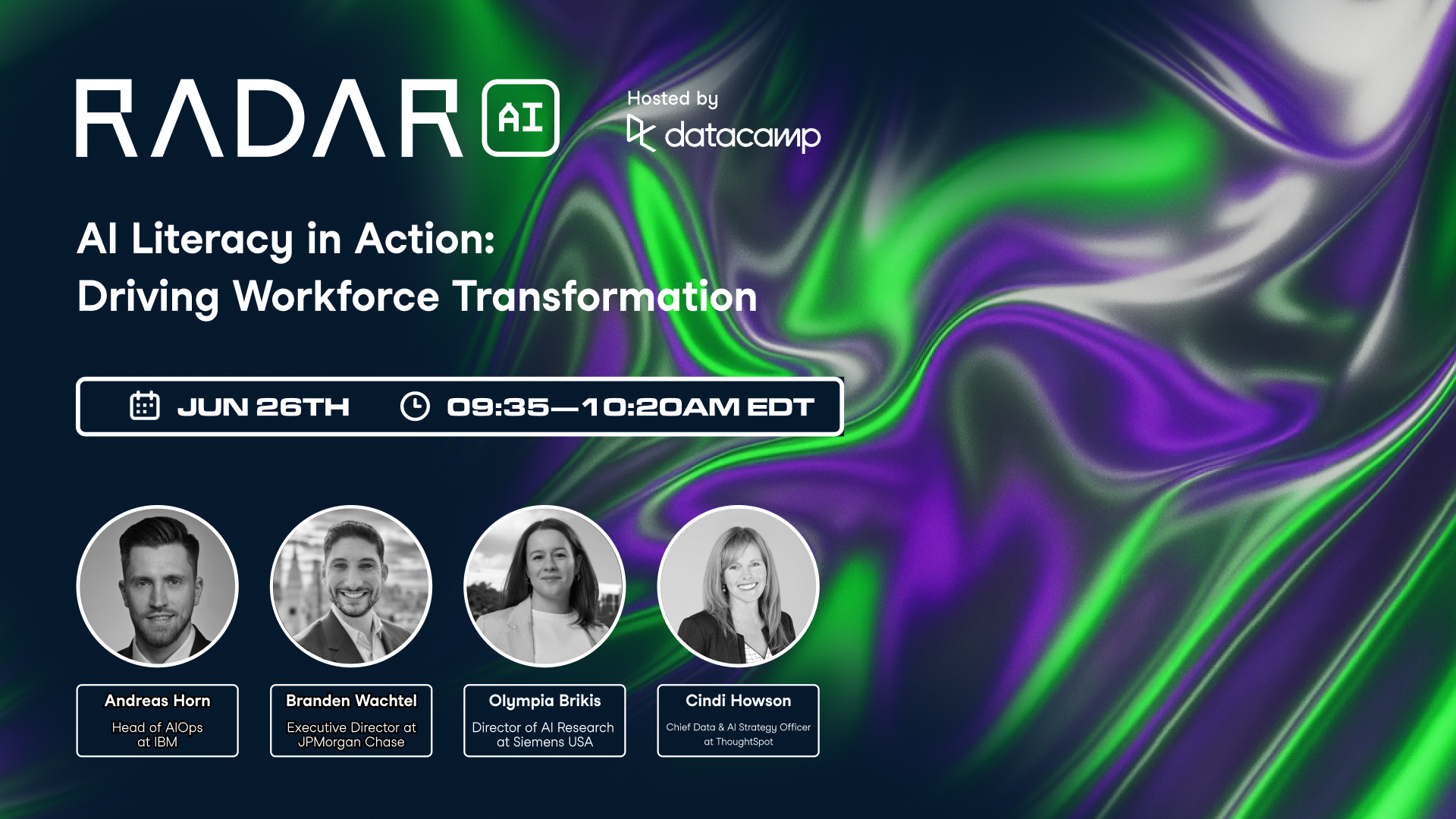Speakers



Olympia Brikis
Director of Industrial AI Research at Siemens USA

Cindi Howson
Chief Data & AI Strategy Officer at ThoughtSpot and host of The Data Chief podcast.
Training 2 or more people?
Get your team access to the full DataCamp library, with centralized reporting, assignments, projects and moreAI Literacy in Action: Driving Workforce Transformation
July 2025
Related
white paper
The Learning Leader's Guide to AI Literacy
Find out how learning leaders should be approaching AI literacy within their organization, focusing on the what, why, and how of fostering organization-wide AI literacy.white paper
The Learning Leader's Guide to AI Literacy
Find out how learning leaders should be approaching AI literacy within their organization, focusing on the what, why, and how of fostering organization-wide AI literacy.webinar
AI Literacy at Scale: Building a Future-Ready Workforce
Industry experts explore strategies for scaling AI literacy across diverse teams, bridging the gap between technical expertise and business understanding.webinar
Spreading Data & AI Literacy Across Your Organization
Learn how to devise a data and AI strategy that aligns with your business strategy, and how to combine technology and training to increase the data and AI literacy across your company for business success.webinar
Spreading Data & AI Literacy Across Your Organization
Learn how to devise a data and AI strategy that aligns with your business strategy, and how to combine technology and training to increase the data and AI literacy across your company for business success.webinar